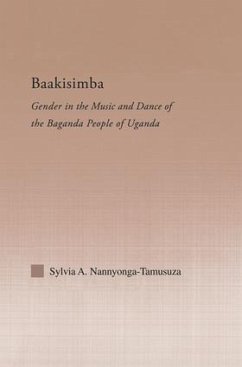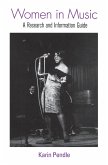Originally a royal court dance, baakisimba asserted the authority of the king as the head of Baganda society. After the abolition of kingship in 1967, baakisimba dance began to be performed in other contexts, with women sometimes playing the accompanying drums-traditionally a man's role-and with men occasionally performing the dance. Sylivia Nannyonga-Tamusuza argues that the music and dance of the Baganda people are not simply reflective of culture; baakisimba participates in the construction of social relations, and helps determine how these relations shape the performing arts. Integrating a study of foregrounds the conceptualization of gender as a time-specific cultural phenomenon. Illuminating the complex relationship between baakisimba and Baganda culture, this path breaking volume bridges the gaps in previous scholarship that integrates music and dance in ethnomusicological scholarship.
Hinweis: Dieser Artikel kann nur an eine deutsche Lieferadresse ausgeliefert werden.
Hinweis: Dieser Artikel kann nur an eine deutsche Lieferadresse ausgeliefert werden.









